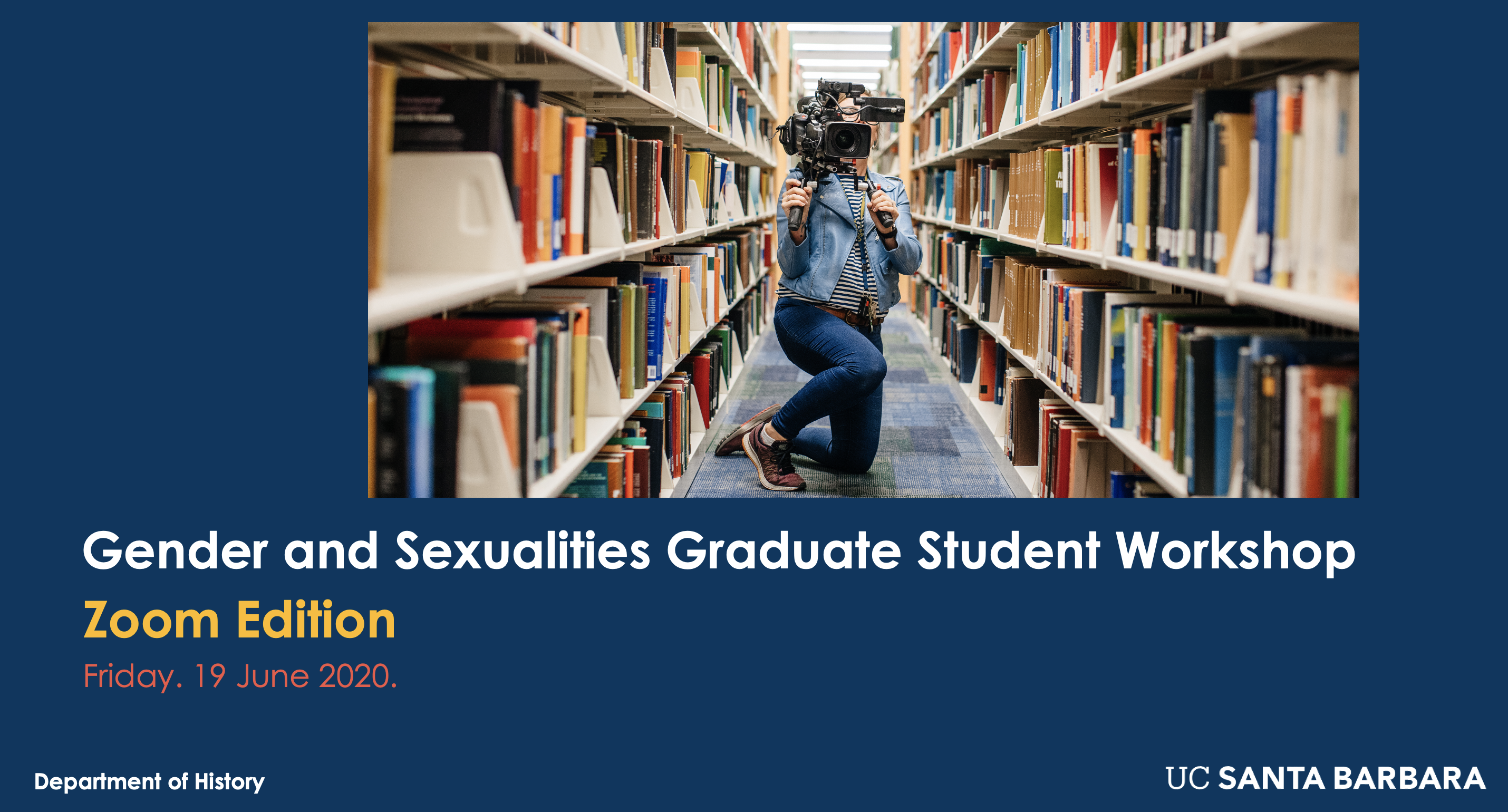
- This event has passed.
Annual Gender and Sexualities Graduate Student Workshop: Zoom Edition
June 19, 2020 @ 9:30 am - 1:00 pm

* For the Zoom link, email jhenderson@history.ucsb.edu.
9:30 AM – 9:45 AM – INTRODUCTIONS
9:45 AM – 10:45 AM – SESSION A
“Women, Children, the Idle, and the Infirm”: Making Mormon Silk Work in the Mid-Nineteenth Century
Sasha Coles, History, UC Santa Barbara
This paper gives shape to the discourse and labors that facilitated the Mormon silk project in the middle decades of the nineteenth century. After members of The Church of Jesus Christ of Latter-day Saints colonized the Great Basin region of the North American West in the late 1840s, church president and prophet Brigham Young tasked his followers with building a self-sufficient economy. He and other church authorities extolled the benefits of manufacturing iron, wheat, wool, cotton, silk, and other commodities at home. Their commentary about the ease with which “idle” household members could tend mulberry trees and feed silkworms in their “spare time” replicated widespread nineteenth-century ideas assumptions about the invisibility of domestic labor and the desire to extract productive working hours from “dependents,” namely women, children, the elderly, and people with disabilities. Chapter 1 locates this boosterism alongside the on-the-ground experiences of people who made silk work 1850s and 1860s. Mormon women and children did most of the planting, pruning, feeding, killing, cleaning, reeling, and spinning required to make silk work. This chapter challenges the historiographical celebration of Mormon economic life as a radical, exceptional communitarian experiment. This study of the silk project reveals a gendered understanding of and experience with work that fell in line with nineteenth-century industrial capitalist ideology.
10:45 AM – 11:00 AM – COMFORT COFFEE BREAK
11:00 AM – 12:00 PM – SESSION B
Between Heaven and Empire: Esther Fahmy Wissa’s Advocacy in Interwar Egypt
Amy Fallas, History, UC Santa Barbara
This paper considers the long durée of Egyptian nationalist Esther Fahmy Wissa’s advocacy and examines how she became an important political liaison between Egypt and Britain during the 1930s. Wissa’s bold advocacy platform and mediation of diplomatic negotiations in the interwar period drew from her experiences in Christian Coptic communal politics at the turn of the twentieth century and her role in Egypt’s women’s movement following the Revolution of 1919. Utilizing archival material from Egypt, England, and the United States, this paper traces how Wissa fused Christian, national, and transnational solidarities to challenge the domestic and international political conditions of her time.
12:00 PM – 1:00 PM – ZOOM LUNCH
